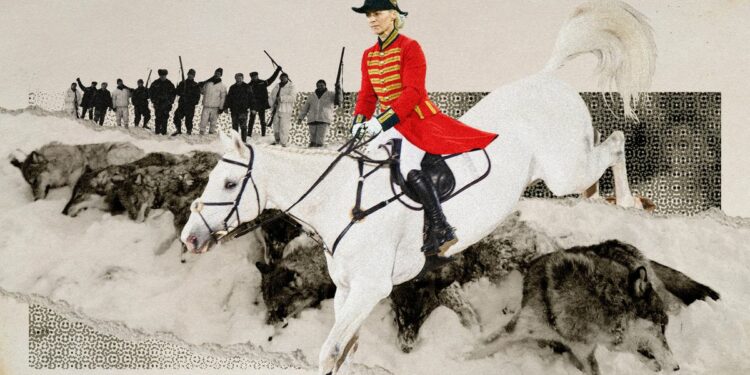In the wake of Dolly’s death, von der Leyen campaigned for a rethink of the European Union’s protected status policy on wolves. Many rural communities shared her anger at not being able to take action against the estimated 21,000 wolves running in packs across Europe, killing 40,000 sheep, goats and cattle every year, said The Times.
Subscribe to The Week
Escape your echo chamber. Get the facts behind the news, plus analysis from multiple perspectives.
SUBSCRIBE & SAVE
Sign up for The Week’s Free Newsletters
From our morning news briefing to a weekly Good News Newsletter, get the best of The Week delivered directly to your inbox.
From our morning news briefing to a weekly Good News Newsletter, get the best of The Week delivered directly to your inbox.
There have also been reports of attacks on humans. In November, a school student “was reportedly harassed by a wolf pack” in a Dutch national park, just months after a toddler had been attacked by a wolf in the same area.
As frustration grew over the past year, authorities in Sweden and German Bavaria took matters into their own hands and gave the green light for hunters to kill wolves “when livestock have been attacked”, said Euronews.
At the Strasbourg meeting this week, members of the Bern Convention on the Conservation of European Wildlife and Natural Habitats voted to change the status of wolves from “strictly protected” to a “protected”. This “clears the way” for the EU to “modify their own directive and make it easier” for member states to grant permission to kill wolves “deemed to pose a threat to farmers’ livestock”, said Politico.
Von der Leyen said the vote represented “a balanced approach between the “preservation of wildlife and the protection of our livelihoods”, and the European Hunters Federation said the vote was a “conservation success”.
But not everyone is so happy. While Armenia, Georgia, Norway and Ukraine were among the countries supporting the change, the United Kingdom, Montenegro, Bosnia-Herzegovina and Monaco rejected it.
Wolves ‘painted as villain’
The hugely successful return of the grey wolf in Europe has become a “polarising topic across the continent”, said Euronews. In contrast to farmers’ concerns, conservationists “hail” the “impact of wolves on the environment and ecosystems”.
Large predators like the wolf are “one of our best allies to combat climate change, deforestation and biodiversity loss”, Enrique Perez, the chairperson of the European Alliance for Wolf Conservation, told the outlet.
The wolf has been “painted as a villain without any scientific evidence”, Sabien Leemans, a senior biodiversity policy officer at WWF Europe, told The Times. And the vote sends a “very bad signal” because the EU asks other nations to protect species like tigers, lions and elephants but “we ourselves cannot accept to live together with the wolves”.
Arguing that the wolf is merely the “latest political pawn” of EU policymakers, advocacy organisation Eurogroup for Animals told Politico that downgrading the wolves’ protection “will not solve the challenges of coexistence nor help farmers”.
Conservationists maintain that, rather than seeking to kill wolves, farmers should use “electric fences, livestock guarding dogs and a human presence”, said Euronews, but Niall Curley, a senior policy advisor at the EU farmers’ association Copa-Cogeca, said those sorts of measures are “just not good enough”.
Source link : http://www.bing.com/news/apiclick.aspx?ref=FexRss&aid=&tid=675267582e474e2d9dd07cd1fefbfa85&url=https%3A%2F%2Ftheweek.com%2Fenvironment%2Feuropes-growing-wolf-problem&c=2155545159728817619&mkt=de-de
Author :
Publish date : 2024-12-05 17:44:00
Copyright for syndicated content belongs to the linked Source.



